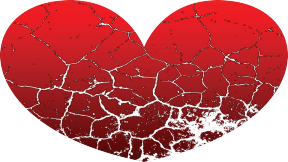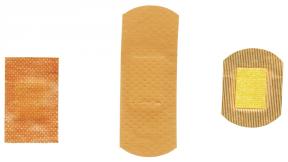
It is estimated that one in three women will be raped in her lifetime and that one in seven boys will be sexually assaulted before the age of 18. (the Wisconsin (U.S.A.) Coalition Against Sexual Assault)
Sexual assault, harassment and abuse are crimes which are abhorrent and unacceptable. They are often perpetrated in the privacy of homes or are committed by those whom people may be close to or trust. This makes it not only unacceptable, but shameful as well.
Victims of sexual assault, abuse and harassment often prefer to keep their victimization hidden, fearing blame. But if you are a victim, this is a danger to yourself and to others too, who may become the next victims of the sexual harasser and/or abuser. Here are some things you can do to break the wall of silence and start the healing:
1. Know what sexual assault, abuse and harassment are
Sexual harassment is sexual behavior that is unwanted. Often the harasser is someone in a position of formal authority, but harassment occurs between co-workers or peers as well. Men are sometimes harassed, but most victims of harassment are women. The harasser is almost always male.
Examples of sexual harassment include suggestive comments, pressure for sexual contact, demands for sex in return for a job or other benefit, sexual jokes.
Sexual assault is an attack of a sexual nature, which includes sexual touching or rape.
Sexual abuse is essentially sexual assault but over a prolonged period of time. Incest, or sexual relations between family members like parents and children, or brothers and sisters, is an example of sexual abuse. But sexual abuse can occur outside of the family too.
2. Get medical treatment if you are sexually assaulted or hurt
If you are injured after an attack or sexually assaulted, go to the doctor and get medical treatment as soon as possible. You do not have to tell anyone who caused the injury, but it is better for your treatment if you tell the doctor exactly what happened.
In the case of rape, a medical examination is important to detect injury and for possible protection against a sexually transmitted disease or pregnancy.
3. Know you are not alone and you are not to blame
In the United States, a child is sexually abused every two minutes, according to Senator Christopher Dodd founder of Children's Caucus.
Sexual harassment, assault and abuse are not uncommon and you are not alone. There are others who have suffered in a similar way. It is also important to remember that no one has the right to sexually assault, attack, harass or abuse another person. Islam, in particular, is very strong in its condemnation of this behavior, and requires both Muslim men and women to behave in a respectful and modest way with the opposite sex (see Quran 24:30-31).
4. Tell someone trustworthy about it
Telling someone else about your experience is a way of getting help. If you have been keeping it hidden inside of you because of shame and fear, it's time to break this wall. Confide in someone you can trust. This can be an Imam, it could be a close family member or a good friend. Telling someone is a way for you to heal and a a step towards doing something about the issue.
5. Consider telling the police about it
If you do this, you don't have to press charges, but you may save someone else from being similarly attacked or abused if police know who your perpetrator was.
6. Keep the following documents with you
If you are being sexually abused and you are still living with your abuser, you must get out of there immediately. You may not feel strong enough to do this right away, but it is a step you must consider. Taking this into consideration, it is a good idea to keep some important documents with you when you choose to leave.
These documents include a birth certificate, passport, citizenship papers, immigration papers, health card, social insurance card, the abuser's social insurance number, money and credit cards, checkbook, bankbook, savings bonds, personal telephone and address book, medicine, house keys, drivers license and car keys, clothing for a few days and valuable jewelry. If you have been thinking of leaving the home to escape violence for a while, start collecting these things.
7. If you are under 18 and living with a sexual abuser...
then you can leave more easily and must do so immediately. You may first want to work out a protection plan (see below) with the person you have confided in, a friend, relative, Imam, and may even be able to escape to your confidant's home. Or you may seek help at a local youth shelter.
8. Establish a protection plan
A protection plan is a plan of where you will go to escape from the abuse in the home.
These are the elements of a protection plan:
- Be aware of when the abuse happens and how often.
- Decide on some safe place you can go to. This might include the mosque, another home, relatives, friends, hotel, a crisis shelter, or another place in which you feel safe.
- Decide how you will get there. Keep some money and a set of extra keys with you and some with your family and/or friends, so you can leave by taxi. This way, even if you don't have money, you can quickly escape to the friend's house by taxi when you feel an attack is imminent. You might arrange with friends, neighbors or relatives that they will come and pick you up when you feel it is necessary.
- Make sure you know where the nearest public phone is and try to memorize the number of the local youth shelter and know what to take when you leave.
9. Know these telephone numbers
The first few pages of a telephone book list numbers of police and other emergency services. Know these numbers by heart. Also, gather information such as the addresses and telephone numbers of people who can help.
10. Notice your feelings
After a sexual assault, you may feel shock, embarrassment, shame, guilt, disbelief, anger, anxiety or nothing at all. These are all normal reactions to a violent crime. Similarly, sometimes months or even years after an assault, survivors reexperience feelings they had immediately following the attack. This is why it's a good idea to consider the next tip.
11. Get counseling
Don't try to heal alone. There are professionals trained to help those who have been abused and assaulted. A local crisis or women's shelter, sexual assault hotlines, and professionals like counselors are better able to help you work through your pain. You are not abnormal, you are simply getting proper assistance from someone who knows how to help you deal with this emotionally and psychologically.
12. For more information go to these places
Women's shelters, police, crown attorney's office-they all have a department dealing with this. You can also check hospitals, multicultural associations, women's centers, a local YWCA, telephone crisis lines, the Public Legal Education and Information Association (in Canada), lawyer referral services, legal aid offices, doctors or public health nurses, social workers, mosques, Islamic centers, Islamic Social Services Association of the United States and Canada (ISSA) or regional Islamic social services.
13. You could get compensation for this crime
You may be eligible for compensation of medical costs or losses incurred as a result of a sexual assault. To receive assistance, you must report the assault to law enforcement personnel within 48 hours and you must file a claim within one year. Call a local Sexual Assault Crisis Center for more information.
14. Find a longer term safe place
Where is the safest place you can stay for a while? It could be family, or a fellow Muslim sister who can open her doors for you. Look for those people who can be sympathetic.
15. Put your trust in Allah and seek strength from Him
Ask Allah's help regularly. He is the source of strength and guidance, and can and will, Insha Allah, help you get through this. Turn to Him regularly in prayer and supplication when you feel overwhelmed with this situation or any other difficulty.








Comments
Reporting to law enforcement...what a joke. I was sexually assaulted by a cop...and I reported it. I got eight months in jail for it...nice system wisconsin...
Location
Pages
Add new comment